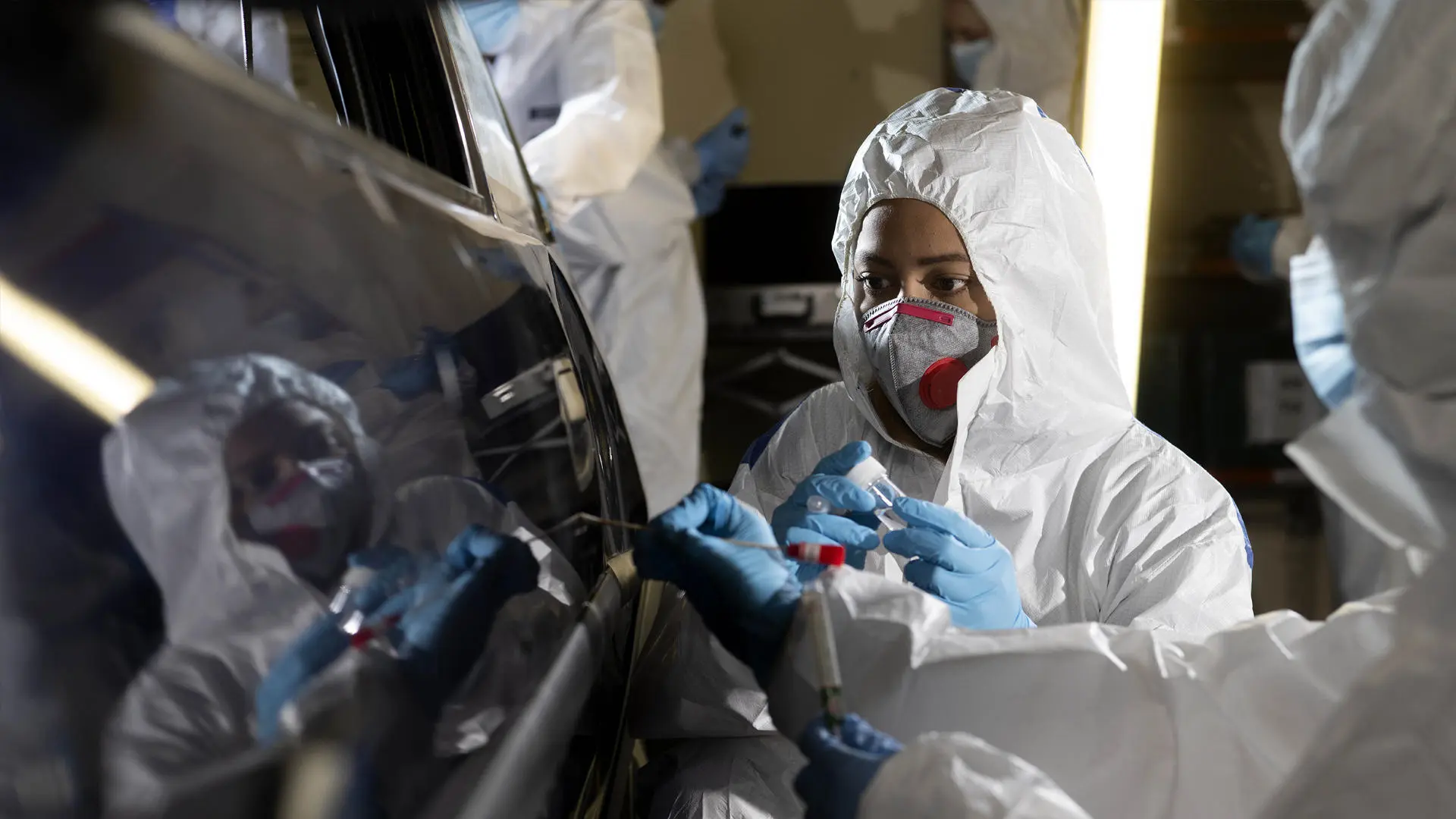In this article, we'll cover:
- What forensic scientists do
- The different types of forensic scientist
- Why become a forensic scientist
- Routes to becoming a forensic scientist in the UK
- Frequently asked questions about becoming a forensic scientist
Key facts
- The average starting salary of a forensic scientist is £18,000 (National Careers Service)
- Experienced forensic scientists can earn up to £45,000 (National Careers Service)
- You may be expected to work on call at short notice
- There are three main routes to becoming a forensic scientist: university degree, apprenticeship and applying directly
What do forensic scientists do?
As a forensic scientist you’ll investigate and examine contact trace material related to crimes. You'd then present your findings in a formal written statement or report. You may have to attend court as an expert witness to provide your evidence. The evidence you present could either support the defence or prosecution in both civil and criminal investigations.
Not all forensic scientists will be involved with crime scene work or reporting. You may choose to work in the laboratory as a forensic scientist.
A forensic scientist also performs biological, chemical and microscopic analysis on evidence taken from crime scenes.
Your daily duties as a forensic scientist could include:
Types of forensic scientist
Your daily duties as a forensic scientist depend on the area of forensic science you want to work in. The main areas of forensic science are:
- Biology – your work could be connected to crimes against people, for example, assault, rape and murder. You’d be responsible for DNA testing and examining hair, blood and clothing fibres.
- Chemistry – your work could be connected to crimes against property, for example, burglary and arson. You’d be responsible for examining substances like paint, glass or chemicals.
- Drugs and toxicology – You’d be responsible for restricted drug testing, including analysing urine and blood for alcohol and investigating for the detection of poison.
Why become a forensic scientist?
Frequently asked questions about becoming a forensic scientist
To summarise, becoming a forensic scientist is an incredibly varied career and with plenty of opportunities for career progression.
If you have questions or want to find out more about becoming a forensic scientist, chat to our team.
Where next?
- Subject
Forensic Science

